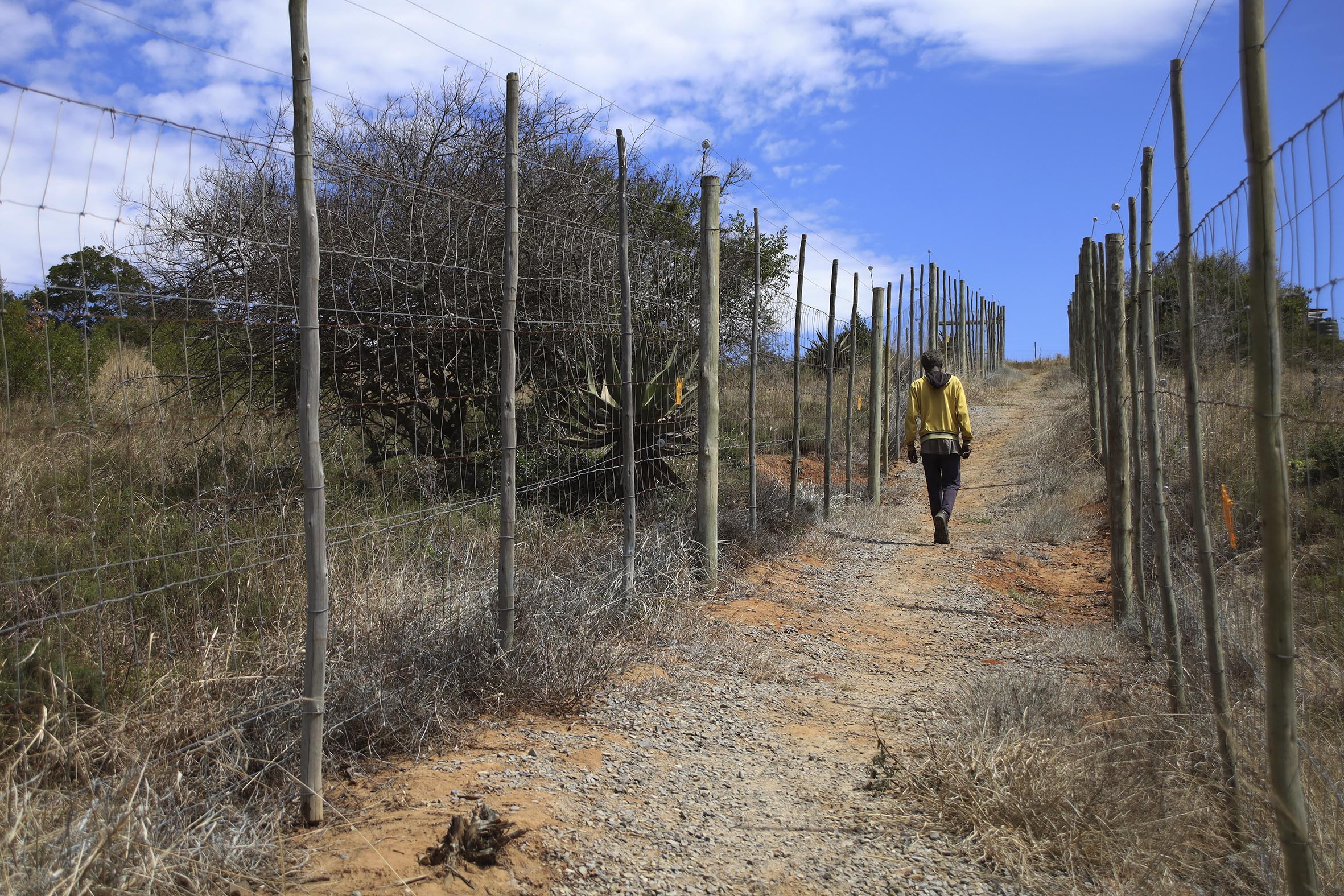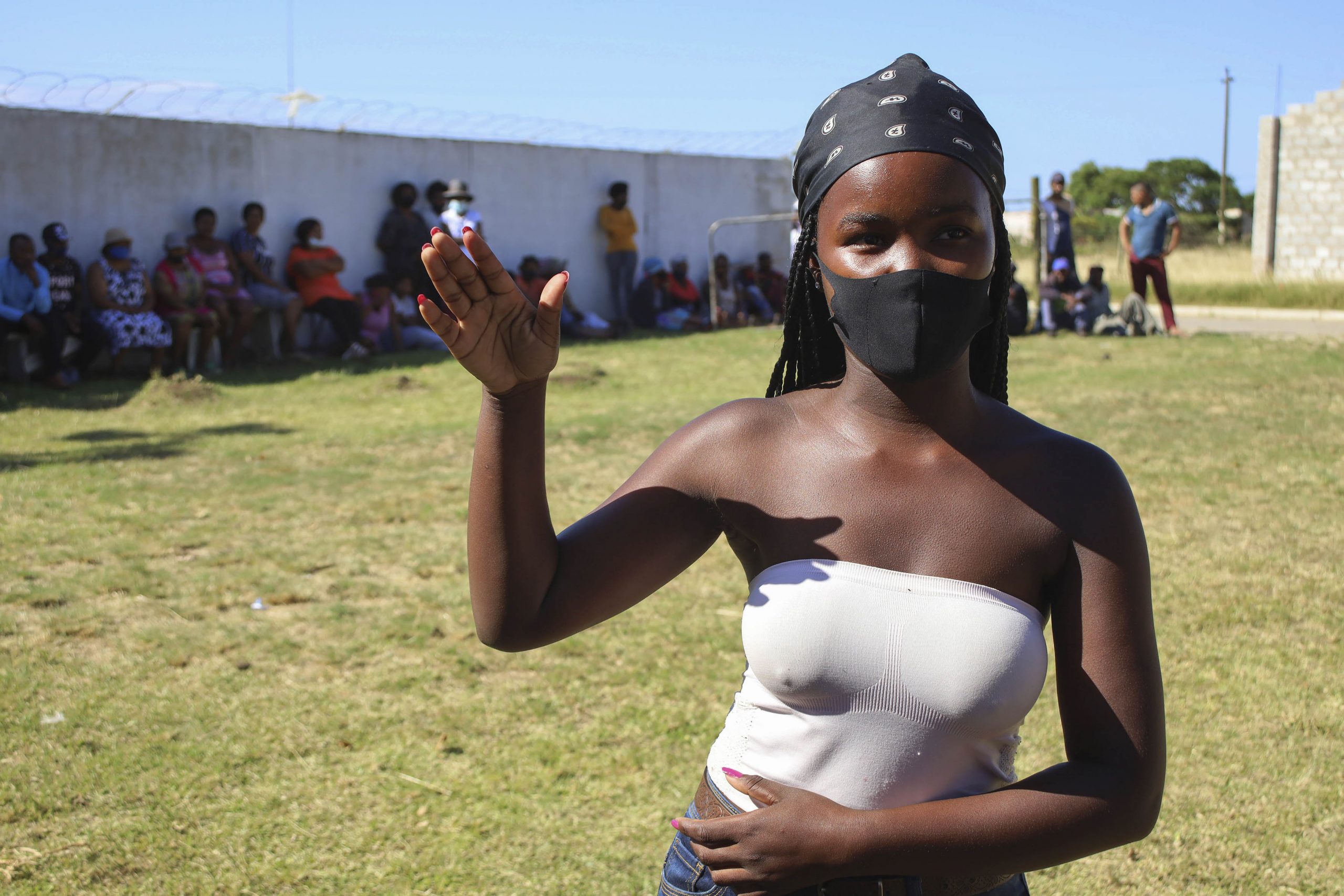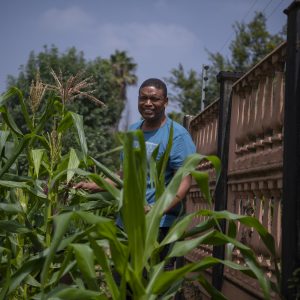The daily grind of pineapple farm workers
In this follow-up story on working and living conditions for farm workers in the pineapple-producing region of Bathurst, workers speak about long hours, unfair dismissals and victimisation.
Author:
30 March 2021

The British army decided in 1809 to “expel” by force all amaXhosa living in Zuurveld, the 19th-century name for Makhanda, Bathurst and Port Alfred. This area would then “be allotted to British settlers in farms of 120 acres each”. An army of 10 000 followed, invading the area in 1811.
AmaXhosa were “attacked in their kraals, plundered of their cattle, slaughtered or driven into the woods. Not less than 23 000 head of cattle were carried off,” wrote historian Colin Turing Campbell in 1897.
After the invasions of 1811 and 1812, the 1820 settlers arrived. The town of Bathurst was named after Henry Bathurst, the secretary of state of Britain’s colonial office. These settlers started many of the 25 commercial pineapple farms operating in this major pineapple-producing area of the Eastern Cape, with some still run by descendants of the 1820 settlers today.
This little-known part of the world largely escapes the spotlight. But about 120 current and former farm workers gathered at a Bathurst community hall on 7 March to share their experiences of life on these farms.
Related article:
Vuyiswa Dinah Lukhwe, 73, grew up on a pineapple farm in the area. “I first went to school and then I was told to work at the pineapples. And then the farmer took me from the pineapples to the dairy. My mother passed away and we buried her on the farm. I was the only one left. I decided to stay there because there was nowhere for me to go.
“But the farmer didn’t want me there. By this time I had children. I got work at a neighbouring farm and used to go home on payday to take groceries to my children. One day I bought sweet potatoes to take home, but the farmer had burnt the house down completely. The children could only save the blankets. That was in 1975. After that I broke my leg and I couldn’t work any more, so I moved to the township in Bathurst.
“My children grew up and moved to Cape Town to work. I felt too old to move so they purchased a house for me here in Bathurst. I never received an RDP house from the government.”
Lukhwe said she came to the meeting to show her support for the other farm workers of the area.

UIF discrepancies
Debanisile Gedze, 50, was fired from Langholm pineapple farm after 34 years for allegedly being absent and failing to follow the proper process to request leave. His payslip shows that he was earning just R2 442 a month with a deduction of R33.75 to the Unemployment Insurance Fund (UIF). But he said his employer did not provide him with a UI-19 form when he fired him and the Department of Employment and Labour told him his employer had never paid his contributions to the UIF.
Because there is no union for farm workers in the area, Gedze did not approach the Commission for Conciliation, Mediation and Arbitration (CCMA) and has now passed the 90-day deadline for doing so.
His former employer, Geraldene Arnold of Langholm farm, would not say why she had fired Gedze or allegedly failed to register him for UIF.
“If a former employee has any issue, he can avail himself to the processes [sic] which are in place facilitated by the CCMA and the Department of Labour. We will unfortunately not entertain any questions or investigations by you. Should the responsible authority approach us for information, we will gladly oblige, and within the ambit of such process,” said Arnold.
Mzwakhe Kalipi, 53, worked in a shop on a farm owned by the leading pineapple farmer in the area, Mark Harris. He was fired verbally recently after the shop manager saw a photo of him taking part in a community water protest. Kalipi was also not given a UI-19 form to claim UIF.
“The boss just said he saw me on camera and he doesn’t want me any more,” said Kalipi. He lives in an isolated house on the farm, which is in poor condition and which the farmer has fenced in, save for a footpath to the highway. For company, Kalipi crosses the highway to visit retired farm workers.
Harris’ attorney, Marius Coetzee, would not respond to questions. “It remains the prerogative of the Department of Labour to investigate labour matters,” he said. “If they are so inclined, we are quite sure that they are fully capable of conducting their own investigations. In the circumstances, you are not a representative of the Department of Labour, and our client does not owe you any explanation.”

Behind the pineapples
Xolisa Runeli, 29, has been a community activist with a group of other young graduates for years. He has also been a councillor for the EFF since 2019. Runeli was on the phone to a commercial farmer, trying to discuss workers’ grievances, but the farmer told him to mind his own business because the EFF is not a union.
Because of this, Runeli decided to bring together other activist groups in the area and hold a meeting for farm workers and dwellers.
“Farm workers are not fired around here because of the severity of the misconduct. When the farmers see that a worker is old or sick, or they don’t like the worker, they come with allegations and just fire the workers,” said Runeli.

He said the pineapple farm workers in the area are generally oppressed. “We want the world to see that behind those pineapples that they are eating, there is a cry of a Black person. These workers are told to work hard so the farmers can meet a target of pineapples to go overseas. The farmer says he will slaughter a cow at the end of the year. That is supposedly a bonus, that they are given meat.
“What is that? We have got tons and tons of pineapple leaving Bathurst. The farmers are making millions. Other workers are not even here because they fear victimisation. This cannot continue,” Runeli said.
‘Exploited for a long time’
Nomawabo Tshisa of the Rural People’s Movement in Bathurst says farm workers and farm dwellers need to unite to change their current situation. “They must be at the forefront of their own fight. If they can stand up and fight for themselves, a lot of people will support them because it is their hands that produce so that these farm owners can be rich,” said Tshisa.
She added that the Bathurst farm workers should strike “so that the owners can feel their pain and the pineapples can stay there in the ground. Our people have been exploited for a long time and nobody will stop these capitalists but us.”

Many farm workers are fired as soon as they talk to the media, said Tshisa, adding that “we will have to fight tooth and nail to make sure the farm workers and farm dwellers are feeling safe enough to tell their stories.”
Phumeza Jabela, 43, has been working as a pineapple picker on the Giffords Bush pineapple farm for the past 15 years. She earns a take-home pay of R2 733 per month. Her colleague Deborah Charles, 53, has been working on the same farm since she was a teenager, along with Nontsokolo Dwyili, 47, who has been working on the farm for 15 years. All three women say their problem is that they are only provided with one work suit and one pair of boots every two years, which is not enough for the gruelling work of picking pineapples five days a week.
The owner of the farm also breeds cattle and “if he finds out that cattle have been lost, he calls an anti-crime vigilante group from Port Alfred to come. He does not have a good manner in speaking to us and also we don’t know if we will receive this minimum wage. He has not told us what his plans are but he once told us that he will never increase our pay. ‘If you don’t want this money, take your bags and leave,’ he told us,” said Jabela.
They say their other problem is that they get no paid annual leave and do not get paid sick leave unless they produce a medical certificate, even for one day off sick.
Related article:
“Our boss says he wants to get rid of us so that he can start with new people from an outsource [labour broker]. Whilst we are standing here, we understand that others are not necessarily here for the sake of discussing, they are here to spy for the bosses. There will be more victimisation after the meeting. But we have had enough,” said the group.
Nocawa Saki, 34, and Nomvuyo Draai, 39, also work at Giffords Bush farm. Saki has been a casual worker for 11 years and Draai for two years. “Us as casuals, he does not give us rain suits. Those are only for permanents. We pick pineapples in the rain without a rain suit. We buy our own suits, gloves and boots as casuals. We are paid R2 733 per month in envelopes. Our boss has a tendency of using a harsh voice. There is no proper communication. There is no please or thank you. He threatens to fire us and call a labour outsource to come and replace us.”
Craig Handley, the owner of Giffords Bush, did not respond to calls, text messages or a WhatsApp message although this was read.

Locked gate
Velile Dada and his daughter Ziyanda Funani, 15, live on the Buffalo Kloof game farm. Dada gives Funani permission to speak. “I was born there. I am now in grade 10 in high school in Bathurst. Last year, fencing was installed around the farm. On the main road there is a big gate that can only be opened remotely. My father is the only person who has the access code and he was told never to give anyone the code, so when he doesn’t have airtime he cannot open the gate. When I need to go to school, I must stand next to the locked gate in the hope that someone opens. Sometimes nobody comes and I can’t go to school,” says Funani.
The Ndlambe municipality, which includes Bathurst and Port Alfred, has critically low dam levels and delivers limited amounts of water to residents in tanks. “We do not get any water because the trucks cannot access the farm because of this locked gate. We have to draw dirty water from the dam where cows drink,” said Funani.

Wendy Rippon, the owner of Buffalo Kloof, said: “I have no knowledge of this problem. It has not been brought to my attention by workers. If this is a problem, I will obviously address the situation.”
The minimum wage for farm workers increased by 16% in February to R21.69 from R18.68 per hour. But Nomazwi Peyi, 42, says workers on the Hopewell farm only received the new minimum on condition that they increase their working hours to 52.5 per week. This is in breach of the sectoral determination for farm workers in the Basic Conditions of Employment Act, which says farm workers should work a maximum of 45 hours per week and not more than nine hours per day, unless by agreement for a short period.
“Our boss said we only get the new minimum if we work from 6:45am to 5:15pm, which he just imposed on us. He also claps his hands and tells us, ‘Hurry up, hurry, hurry, go and do it.’ We sometimes don’t grasp what exactly he is saying and then we can’t even tell him that we did not hear him. We only get a raincoat, suit and shoes in November. Our boss is so hard to approach, so we just work in our own clothes before then,” says Peyi.
Hopewell farm owner Alan Pike did not respond to voicemail messages.
Many of the farmers are members of the Pineapple Growers’ Association and supply Summerpride Foods, a company that makes “pineapple concentrate for the international beverages industry”. Summerpride Foods sales manager Wendy Tobbell did not respond when asked for Summerpride’s policies or standards regarding working conditions on the pineapple farms.


